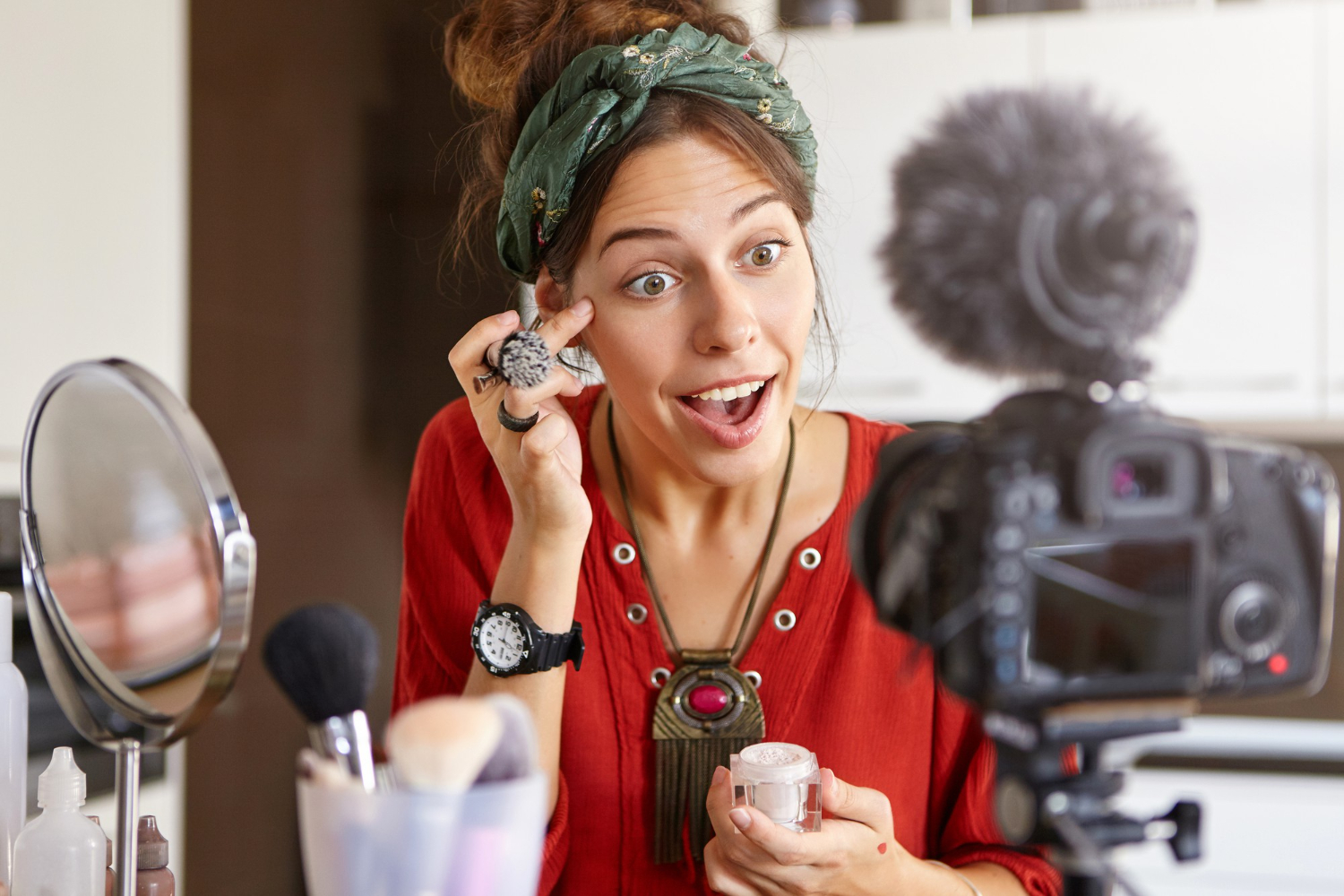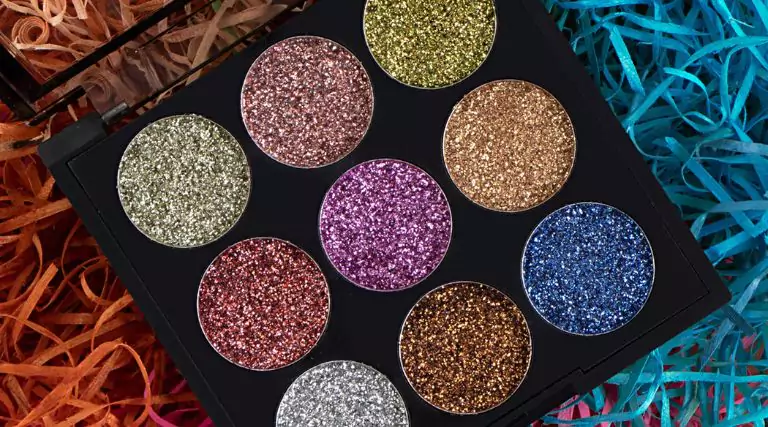Unveiling the Palette: A Comprehensive Exploration of Makeup Usage in the 21st Century
Related Articles: Unveiling the Palette: A Comprehensive Exploration of Makeup Usage in the 21st Century
Introduction
With enthusiasm, let’s navigate through the intriguing topic related to Unveiling the Palette: A Comprehensive Exploration of Makeup Usage in the 21st Century. Let’s weave interesting information and offer fresh perspectives to the readers.
Table of Content
Unveiling the Palette: A Comprehensive Exploration of Makeup Usage in the 21st Century

The act of applying makeup has transcended mere aesthetics, evolving into a multifaceted practice with diverse motivations and impacts. While the application of pigments and cosmetics has been documented for millennia, the 21st century witnesses a unique confluence of cultural, societal, and individual factors shaping its widespread use. Understanding the reasons behind makeup application offers valuable insights into contemporary human behavior, revealing the complex interplay between self-expression, societal pressures, and personal fulfillment.
The Spectrum of Motivation: Delving into the Reasons Behind Makeup Usage
The reasons why individuals choose to wear makeup are as diverse as the individuals themselves. A nuanced examination reveals a spectrum of motivations, ranging from the purely practical to the deeply personal.
1. Enhancing Natural Beauty and Confidence:
Makeup’s primary function often lies in enhancing natural features. The application of color, contouring, and highlighting techniques can subtly accentuate facial features, creating a more balanced and symmetrical appearance. This can lead to a heightened sense of self-confidence, contributing to a positive self-image.
2. Expression of Individuality and Creativity:
Makeup serves as a powerful tool for self-expression. By experimenting with colors, textures, and styles, individuals can communicate their unique personalities, moods, and cultural affiliations. The act of applying makeup becomes a creative outlet, allowing for experimentation and the exploration of different aesthetic identities.
3. Masking Imperfections and Achieving a Desired Appearance:
For many, makeup serves as a tool for concealing perceived imperfections. This can include covering blemishes, minimizing the appearance of dark circles, or even adjusting skin tone. The desire to achieve a desired appearance, often influenced by societal beauty standards, fuels this motivation.
4. Social and Cultural Norms:
Social and cultural norms play a significant role in shaping makeup usage. In many societies, makeup is considered an integral part of personal grooming and presentation, particularly in professional and social settings. These norms can influence individuals’ perceptions of what constitutes an acceptable appearance, driving the use of makeup for conformity and acceptance.
5. Psychological and Emotional Benefits:
The act of applying makeup can have a positive impact on mental well-being. The ritualistic nature of applying makeup can provide a sense of control and order, offering a therapeutic outlet for some individuals. The visual transformation that makeup offers can also lead to a boost in self-esteem and confidence, impacting emotional states.
6. Practical Considerations:
Makeup can serve practical purposes beyond aesthetics. For example, stage and screen performers rely on makeup for visibility under stage lights or on camera. Similarly, certain professions, such as those in the beauty industry, require the use of makeup as part of their work.
7. Historical and Cultural Influences:
The history of makeup usage reveals a rich tapestry of cultural influences. From ancient Egyptian practices to the evolution of modern makeup trends, historical and cultural contexts have shaped the motivations and meanings associated with makeup application.
The Importance of Makeup: Beyond Aesthetics
While the aesthetic benefits of makeup are undeniable, its impact extends far beyond the superficial. Makeup can be a powerful tool for:
1. Fostering Self-Confidence and Empowerment:
By enhancing natural features and allowing for creative expression, makeup can significantly boost self-confidence and empower individuals to feel more comfortable in their own skin. This can have a positive ripple effect on various aspects of life, including social interactions, professional pursuits, and personal well-being.
2. Celebrating Diversity and Inclusivity:
Makeup transcends cultural boundaries and offers a platform for celebrating diversity. The beauty industry’s increasing inclusivity, with a wider range of skin tones, ethnicities, and gender identities represented, allows individuals to find products that resonate with their unique features and preferences.
3. Encouraging Artistic Expression and Creativity:
The act of applying makeup can be a form of artistic expression, allowing individuals to experiment with colors, textures, and techniques, pushing creative boundaries. This artistic outlet can be a source of personal fulfillment and a means of expressing individual creativity.
4. Promoting Self-Care and Ritual:
The ritualistic nature of applying makeup can provide a sense of self-care and mindfulness. The act of taking time for oneself to apply makeup can be a relaxing and enjoyable experience, promoting a sense of well-being and self-love.
5. Challenging Societal Beauty Norms:
Makeup can be a tool for challenging and subverting societal beauty norms. By experimenting with unconventional looks and defying traditional beauty standards, individuals can challenge the narrow definitions of beauty imposed by society, promoting self-acceptance and body positivity.
FAQs: Addressing Common Questions About Makeup Usage
1. Is Makeup Necessary?
The necessity of makeup is subjective and depends on individual preferences and motivations. While some individuals find makeup empowering and enhancing, others prefer a natural look. There is no right or wrong answer, and the decision to wear makeup should be based on personal choice.
2. Does Makeup Have a Negative Impact on Skin?
While some makeup products can potentially irritate sensitive skin, the majority of modern makeup is formulated with high-quality ingredients and undergoes rigorous testing. It is essential to choose products that are appropriate for your skin type and to remove makeup thoroughly before bedtime.
3. Is Makeup Only for Women?
The use of makeup is not limited to any specific gender. Many men use makeup for various reasons, including enhancing their natural features, concealing imperfections, or expressing their individuality. The beauty industry is increasingly recognizing and catering to the needs of men who use makeup.
4. Does Makeup Promote Unrealistic Beauty Standards?
The beauty industry, including the makeup sector, has historically perpetuated unrealistic beauty standards. However, the industry is evolving, with increased representation of diverse beauty and a focus on promoting self-acceptance and natural beauty. It is important to be critical of the messages conveyed by the industry and to prioritize self-love and individuality.
5. How Can I Use Makeup Responsibly?
Responsible makeup usage involves choosing high-quality products, being mindful of ingredients, and applying makeup with care. It is also crucial to prioritize self-acceptance, embrace natural beauty, and resist the pressure to conform to unrealistic beauty standards.
Tips for Responsible Makeup Usage:
- Choose high-quality products: Opt for makeup brands known for their ethical sourcing, cruelty-free practices, and use of safe and effective ingredients.
- Consider your skin type: Choose makeup that is formulated for your skin type to minimize irritation and maximize performance.
- Remove makeup thoroughly: Always remove makeup before bedtime to prevent clogged pores and skin irritation.
- Practice proper hygiene: Regularly clean your makeup brushes and sponges to prevent bacteria growth and maintain hygiene.
- Experiment and find your style: Don’t be afraid to experiment with different makeup looks and find what makes you feel confident and comfortable.
- Embrace your natural beauty: Remember that makeup is a tool for enhancing, not masking, your natural beauty.
- Challenge unrealistic beauty standards: Be critical of the messages conveyed by the beauty industry and prioritize self-love and individuality.
Conclusion: The Enduring Relevance of Makeup
The use of makeup continues to evolve, reflecting the changing dynamics of society and individual self-expression. From enhancing natural features to celebrating diversity and challenging beauty norms, makeup plays a multifaceted role in contemporary life. Understanding the reasons behind its usage sheds light on the complex interplay of cultural influences, personal desires, and the pursuit of self-fulfillment. As the beauty industry continues to evolve, the motivations and meanings associated with makeup will undoubtedly continue to shift and adapt, reflecting the ever-changing landscape of human expression and identity.








Closure
Thus, we hope this article has provided valuable insights into Unveiling the Palette: A Comprehensive Exploration of Makeup Usage in the 21st Century. We hope you find this article informative and beneficial. See you in our next article!